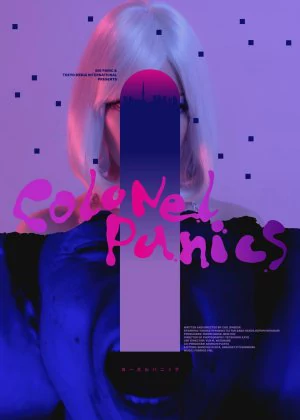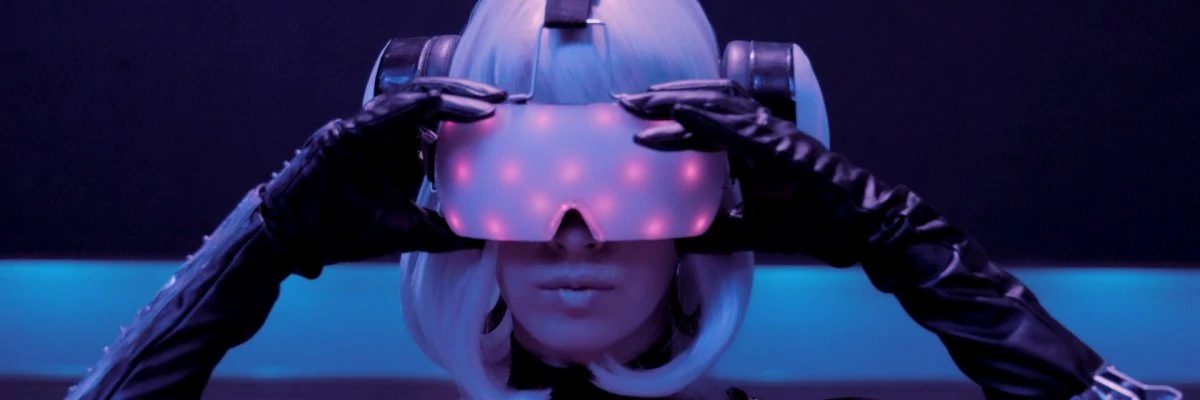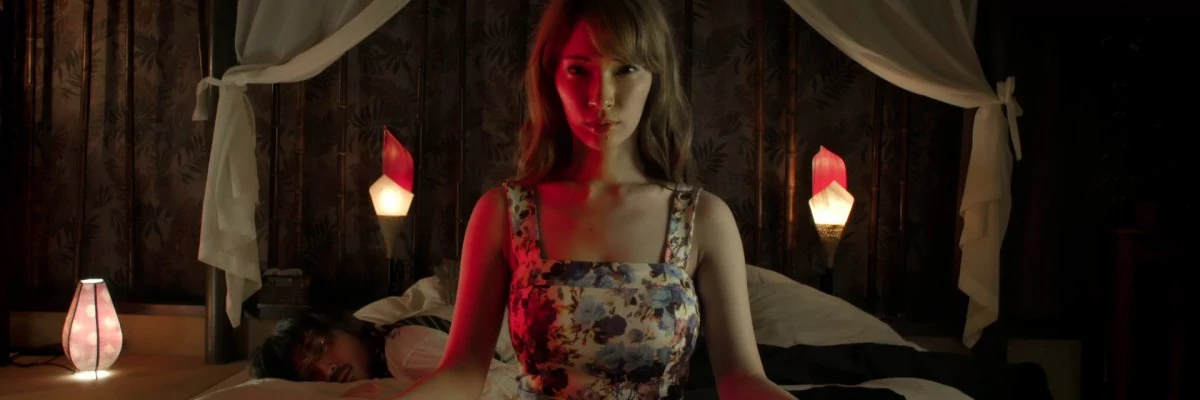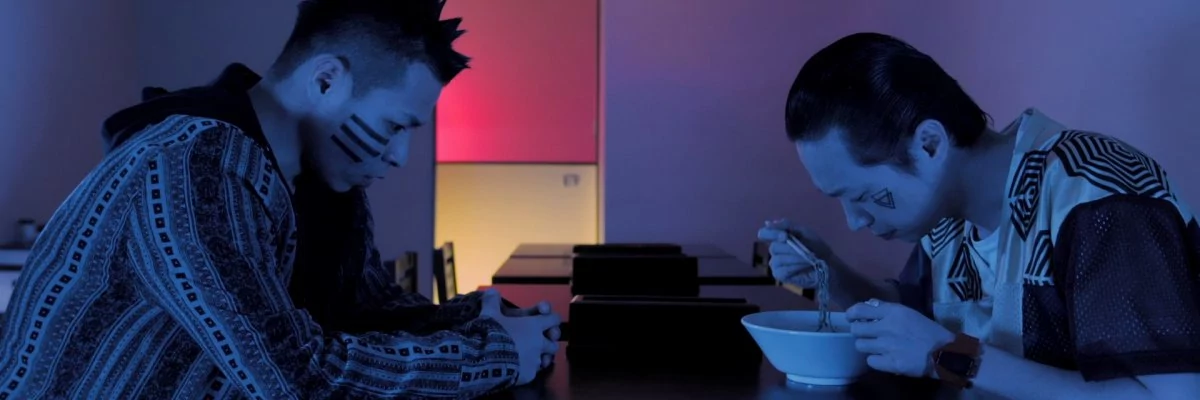Colonel Panics

Sometimes it only takes one quick glimpse at a poster to get excited about a film. It will emit a certain vibe that immediately reassures you the film will deliver. It doesn't happen all that often and as a film fan it's something to cherish, which I then did when I first noticed the poster of Colonel Panics. It's been a while since I watched a truly great indie from Japan and this film seemed to possess all the right qualities. I wasn't let down either, but I have to say the film still managed to surprise me.

Colonel Panics (a smart pun on kernel panics) is a bit of a mess though. The film was shot in Japan with a Japanese cast, it's helmed by a South-Korean director and it was finished in the US and Australia, where the special effects and post-production were handled. Genre-wise it's a complete mishmash too, ranging from cyberpunk to horror, with exploitation, thriller and sci-fi elements thrown in to make it even more eclectic. Even so, director Cho Jinseok is well in control of the film, making sure there's a consistent atmosphere that ties everything together.
Thematically there's also a lot of ground to cover. Cho isn't shy to include a broad range of ideas and concepts, ranging from VR alienation to Japan's war crimes, the impact of AI on creativity and the power dynamics between men and women through sexual relationships. Cho doesn't really push any personal views through, instead he touches upon several points and leaves the rest for the audience to ponder. It's an approach I appreciate a lot, as it gives room for the viewer to cherry-pick the bits that are interesting to him and come to his own conclusions.
The story of Colonel Panics revolves around a new VR game experience that taps into the mind of its players. The game is still a little glitchy though and not quite ready for its big market debut. A freelance hacker is hired to iron out the remaining bugs, but he gets caught up in the game and behind his back the game starts assimilating other software on the hacker's network. It's a pretty typical story of the virtual blending with the real world, then again the plot is hardly the main trigger to watch a film like this.

On a visual level there is plenty to enjoy. It's not just the strong use of color, the excellent cinematography or the slick image manipulations that made things interesting. Yoshihiro Nishimura's analogue effects (Tokyo Gore Police) play their part, the datamosh experiments are a definite plus too. Ultimately though it's the way everything is put together that impresses the most. And even though the film is boldly stylized, it's actually some of the more subtle moments that grabbed me the most. An interview at the very start of the film in particular, with the camera floating through the audience and small, barely noticeable glitches disturbing the rhythm of the scene, felt both beautiful and unsettling at the same time.
The way Cho incorporates music and sound is also a big asset. I guess this is somewhat of a given with cyberpunk-like films, where sound manipulation often has a big effect on the film's overall atmosphere. Other directors should take notice though, because with a few simple yet effective techniques a lot is accomplished. The music itself is pretty nice and the audio manipulation is on point. While it could've done with some additional tinkering and experimenting (I think Cho could've taken things a little further still) it remains a big improvement over 99% of all other audio tracks out there.
The plot is a little confusing by design, the fact that the two lead actors are featured in double roles doesn't make things any easier. There are no big names here, but that's also typical for this kind of production, still the actors do a pretty commendable job. Masaya Mimura and Tia (Tan) are convincing in their parts, even (and especially) when the virtual and the real are starting to converge. There's also a nice supporting role for Suguru Minami and some smaller parts, rounding off a pretty solid cast. No stand-out performances, then again this isn't the kind of film that relies on its actors to shine.

The core of the film has strong sci-fi/cyberpunk roots, but Cho doesn't mind diverging into other genres when the opportunity arises. There are some relentless scenes that challenge the nastiest of horror films (with one scene in particular reminding me of Gaspar Noé's Irréversible), while other moments push the film more towards exploitation. While these scenes are somewhat distinct and different in vibe compared to the rest of the film, they still manage to relate closely to the core of the story, and they never feel out of place. It's not an easy balance to uphold, but the way Cho handles this is laudable.
Colonel Panics isn't the easiest of films. It's probably a little overambitious and it maybe tries to cram a little too much in its 89-minute running time. It also doesn't pull any punches and Cho simply bombards his audience with his vision and ideas. On the flip side, it's a wonderfully stylized, strongly realized and often completely baffling film that has both heart and brains and lacks any kind of commercial filter. It's exactly the kind of cinema I love and admire, but which is scarce and hard to find. Now fingers crossed Jinseok Cho can survive in this industry and make a second feature, because the world of film needs people like him.